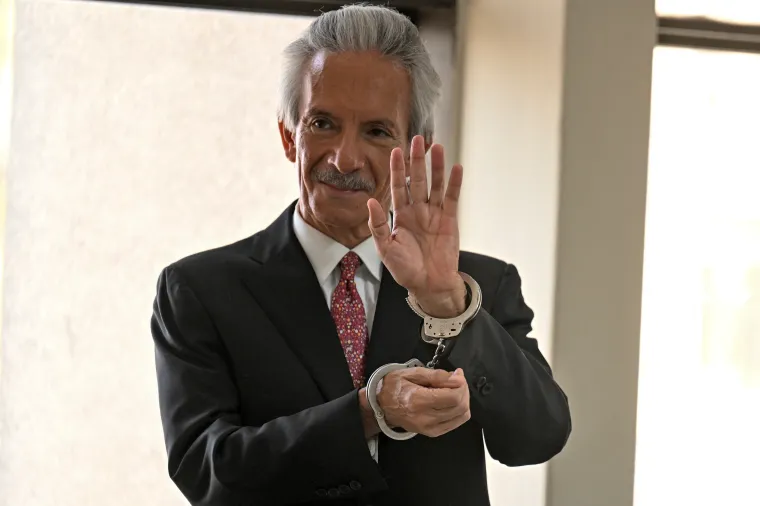14 organizations call for justice in Zamora’s case and respect for the rule of law
Over the past year, the government of President Alejandro Giammattei has engaged in desperate attempts to criminalize journalism in Guatemala. Among the lowest points of this campaign has been the imprisonment and sentencing of prominent investigative journalist José Rubén Zamora. As part of a broad government crackdown to silence and disempower those whose work threatens entrenched corrupt power, Zamora’s lawyers were intimidated, his newspaper was forced to shut down, and at least 20 local journalists have fled the country for their safety.
Meanwhile, the government continues its efforts to undermine the rule of law and public institutions, with its recent blatant attempts to disrupt a democratic electoral process raising international alarm. The deterioration of press freedom in Guatemala was thoroughly documented last May by a joint fact-finding mission that included the Committee to Protect Journalists (CPJ) and nine other organizations, and exposed the alarming situation for journalists and the press around the country.
We, the undersigned organizations, urge Guatemala’s Eighth Criminal Sentencing Court to stop and reverse this steady decline in democracy by providing due justice in Zamora’s case so that he may be released without further delay. This act of justice would go a long way toward reestablishing public trust in the rule of law and democracy in Guatemala as the country prepares for its general election on August 20.
On July 29, 2022, Guatemalan police raided the home of Zamora, the founder and publisher of investigative daily newspaper elPeriódico, and the publication’s newsroom. In May 2023, elPeriódico ceased online publication and then fully closed down operations after 26 years, leaving a gaping hole in Guatemala’s investigative media ahead of the country’s election. Held in solitary confinement during pretrial detention, Zamora was forced to engage as many as nine lawyers as he and his family attempted to debunk the charges and achieve justice. On June 14, Zamora was convicted of money laundering, acquitted on blackmail and influence peddling charges, and was sentenced to a six-year prison term and a fine. International watchdogs and rights organizations have widely criticized the charges against him as retaliatory.
As part of their observation of Zamora’s trial, the American Bar Association and the Clooney Foundation for Justice’s Trialwatch initiative have documented a detailed timeline of irregularities in the legal process, noting that “Zamora has been represented by 9 different lawyers throughout proceedings, and many did not seem to have access to the casefile.”
Zamora founded his newspaper in 1996 to serve as a vehicle for public accountability. It evolved into a working school for investigative journalists who honed their skills exposing corruption in Guatemala, a country with a record of media repression and gross human rights violations.
The campaign against elPeriódico and its staff is part of a broader backlash targeting prosecutors, journalists, and others involved with the International Commission Against Impunity in Guatemala (CICIG), a U.N.-backed anti-corruption commission active in the country until 2019. Over the last four years, many of the prosecutors and lawyers involved with the CICIG have been forced to flee Guatemala. With Zamora’s imprisonment, Giammattei’s administration turned its attention to journalists at other outlets, particularly investigative reporters.
In May this year, international organizations conducted a mission to monitor freedom of expression and press freedom in Guatemala ahead of the election. The mission reported a troubling atmosphere of intimidation, fear, and self-censorship among journalists, leading to many refraining from putting their names on their work for fear of reprisals. The journalists and communicators interviewed said that the intimidation strategy against press freedom has become a systemic issue, involving state representatives, the private business sector, and organized crime.
In a March 2020 report, as Giammattei was about to take power, CPJ outlined concerns for press freedom in Guatemala, including the use of criminal proceedings to retaliate against journalists; fears that journalists who covered the CICIG and anti-corruption efforts might be targets for aggrieved politicians and other powerful individuals; and concerns that rural and indigenous journalists faced discrimination and threats from criminal groups and corrupt officials. Only two years later, Giammattei’s administration delivered a critical blow to the press by putting Zamora behind bars.
Elected officials have long sought to silence Zamora and his news outlet. In 2013 and 2014, then-President Otto Pérez Molina and Vice President Roxana Baldetti Elias filed criminal complaints against Zamora in response to his critical reporting and commentary.
Past attacks on Zamora also include:
- August 2008: Zamora was abducted, drugged, and beaten.
- June 24, 2003: Zamora and his family were attacked and intimidated by an armed group at their home in Guatemala City.
- May 15, 1996: Two grenades were tossed from a vehicle when Zamora was dining in a Guatemala City restaurant, damaging his car.
The attacks on Zamora serve as a stark testament to the erosion of freedom of speech and the criminalization of journalism in Guatemala. Officials must end this malicious retaliation against him and respect the rule of law. It is time for Zamora to be released.
Signed,
Article 19 Oficina para México y Centroamérica
Associação Brasileira de Jornalismo Investigativo (Abraji)
Committee to Protect Journalists (CPJ)
IFEX-ALC
Free Press Unlimited
Fundación para la Libertad de Prensa (FLIP)
Fundamedios
Instituto Cubano por la Libertad de Expresión y Prensa (ICLEP)
Instituto Prensa y Sociedad IPYS, Perú
Fundación por la Libertad de Expresión y Democracia (FLED)
Media Development Investment Fund (MDIF)
Protection International
Reporters Without Borders (RSF)
Voces del Sur
